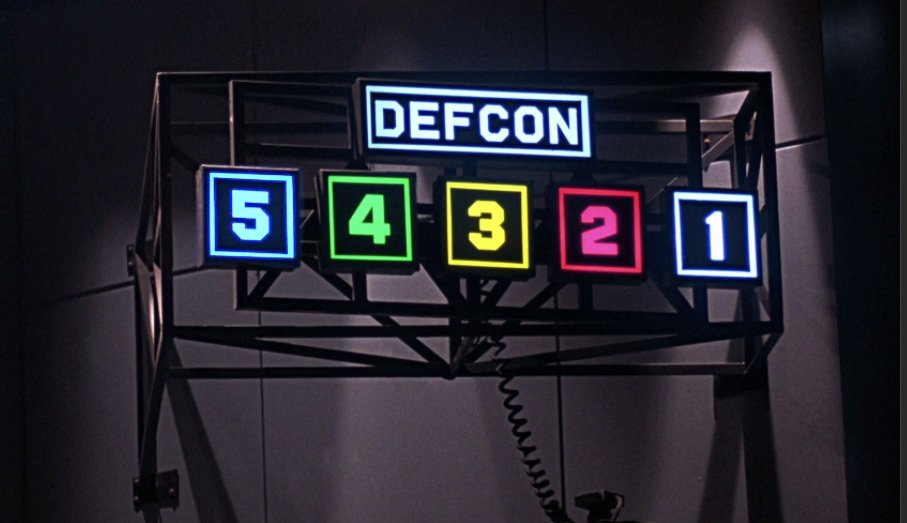The Weekly Feast – Pumpkin Chili
Cold, wet weather practically demands chili. I love all kinds of chili. This is one I make around this time of year, because I can use fresh pumpkin rather than the canned stuff. It makes a huge difference!
Ingredients:
- 2 cans navy beans* OR 1 bag (soaked overnight)
- vegetable or chicken broth
- butter or margarine
- 1 onion, chopped
- 1 can fire roasted stewed tomatoes
- 1 small can tomato sauce
- 1 tiny can chopped green chillies
- 1 “pie” pumpkin (small), roasted and the meat scraped out
- spices: coriander, cumin, garlic flakes, rosemary, chili powder, red pepper flakes, oregano, salt, pepper
If you want to make this vegan and gluten free, dump all of the above into a crockpot, put it on high, and cook for about 6 hours. Check the beans at the 4 hour mark and every hour thereafter. Cook until the beans are soft but not too mushy. Add in extra liquid if necessary. You can add heat to it with a hot sauce, or simply sprinkle with more red pepper flakes at the table.
If you want this to be meaty, I actually recommend ground turkey or chicken rather than beef for this one. You don’t want to overpower the flavor of the pumpkin, which ground beef will do. Instead, brown up your ground turkey or chicken, then add it in with the other ingredients.
When it comes to the *beans, you don’t have to use navy beans. Feel free to use whatever type or combination of types that you like. Because I want the pumpkin to shine through, I went with navy beans. You could use little white beans, kidney beans, black beans… it’s up to you. One bag of dried beans, soaked overnight, is equivalent to 2 of the big cans of beans, rinsed and dumped into the cooker.
Serve your chili with a side of cornbread, and top it with green onions, parsley, sour cream (or a dairy free alternative), and/or cheese. Enjoy!
DEFCON ?
Yesterday was interesting in terms of our security posture.
On Friday we discussed the probability of bad things happening at the local stores when people’s EBT cards stop working. I consider this a real consern.
Because of our agreed-upon concerns, we agreed to wait until today to do our weekly grocery shopping. Monday being the day when I can actually provide security for my lady while she is shopping.
Sunday morning my wife gets a message from her Aunt stating that my brother-in-law’s EBT would not be affected by the shutdown because “a federal judge has ordered Trump to use emergency funds for SNAP.” My wife heard this as a change in DEFCON. I heard it as BS from her liberal Aunt.
Article III courts have no authority over the Article III Executive’s enumerated powers. That includes how he deals with a budget shortfall.
My security posture is still high. I don’t use DEFCON values for myself or my family. Regardless, I will continue to provide armed security for my lady when she is shopping until the threat level goes down.
Side Note
We watched House of Dynomite yesterday. It is a well-done movie, handling multiple aspects of an incoming ICBM from multiple points of view.
For me, the two things that stuck out for realism are that nobody was stupid and nobody violated security protocols. In terms of security protocols, a common trope in this type of movie is the characters making a call to their loved ones to tell them to evacuate.
The loved one tells a few of their loved ones, and before you know it, there is mass panic, and the mob has closed the city, and egress is impossible.
While people did call their loved ones, they just told their loved ones they were loved with reasonable excuses. No mass panics.
Open Minds – Strawman Arguments
We talk about “them” living in a bubble. And I do mean “us” and I do mean “them”. Both teams make the accusation.
The question then becomes, how much do other viewpoints leak into your bubble?
From where I sit, I am constantly exposed to what the other side seems to be saying. It is on every mainstream media. Often times in lockstep. I do mean lockstep. There are more than a few examples of talking heads saying the same words.
I don’t know how much of the conservative viewpoint actually reaches into the left’s bubble. I assume there is some, but I do not believe it is very much.
As an example, consider this piece of dialog from Last Man Standing
- Ryan:
- Democrats have created a nation of takers who live like kings and who have never done a lick of work in their lives. My opponent may disagree with this, but the best thing we can do for the poor, elderly, and disabled is to let them rot. Uh, thank you.
- Eve:
- Of course I disagree with that. Everybody disagrees with that. You know what? This whole thing is stupid. Okay? You’re just an angry, malnourished vegan that is jealous that I can eat cheeseburgers. So I quit. This is stupid. I’m leaving.
- Ryan:
- Oh, yeah. And Rachel Maddow sucks. Man, it is real easy being a conservative.
— Last Man Standing S05E21: “The Marriage Doctor”
This was done as comedy. It was funny because it reflected a reality. That the left has a view of the right that is a caricature of reality.
When we deal with the caricature of a person, we are not interacting with a person; we are interacting with a clown like version of that person. It is insulting to the person in question, and it leaves you looking foolish.
EBT and SNAP
This is a good example of the strawmen being built.
“The left cares more for illegal aliens than they do about Americans!”
vs.
“The right doesn’t care that people are going to starve without EBT and SNAP!”
These are strawman arguments. Or maybe better, they are such misrepresentations that it is impossible to have an honest discussion.
If you look at me and tell me that I, personally, don’t care that people will starve, I will point you to the donations our family has made. Anticipating SNAP and EBT being cut off, we reached out to people and communities that we know, offering help.
So why would you say I don’t care? Why would you say that my family doesn’t care?
“Well, that’s different.” isn’t really an answer. The left has used a very broad brush to paint people standing over here as evil, uncaring subhumans.
We arn’t.
I believe, no, I know, that the left doesn’t care more for illegal aliens than Americans. What I believe is that they want to help everybody, regardless of the cost. Because they wish to help everybody, they are willing to do things to accomplish those ends.
How do we get here? We get here because it is easier to fight the bogeyman than to fight real evil. It is easier to fight the uncaring conservative that just wants people to starve than it is to talk to them and find out the reasons.
It is easier to write off a progressive as caring more for non-Americans.
Hand up or Hand out?
Much of this revolves around a perception of how help should be handled and what the costs are.
I would hope that both sides can agree that there are people who are cheating or gaming the system. I hope both sides can agree that there are people who need and deserve help. The question then becomes a balancing act. How much fraud are we willing to endure such that every person in need and who is deserving gets help? How many people will struggle to reduce fraud?
There are thousands of people who deserve and need supplemental food assistance. I want us to take care of those people.
What is the best way to do so? That is a discussion that we should have. My conservative beliefs suggest, strongly, that such help should come as close as possible to those in need. Their local community, be that a church or the community center, as local as possible. Then, maybe, we should be looking at town- or city-sized communities. Then state and rarely federal.
This begs the question, who decides?
Dick was my best friend. He is now in the special prison for kiddy diddlers. His wife worked hard; he didn’t work nearly as hard. There were always reasons he wasn’t getting a job. Because he was a thief and unwilling to work, his family lost their home.
We took them in. We found room in our home for them all. We were feeding them and housing them. His wife was buying food for all of us to contribute to the running of the house. He contributed nothing.
One day my wife had had enough and went off on him. Get his lazy ass off the couch and DO something. Get a job or make her life easier. He chose to leave to live with his mother.
His stepdaughters accused him shortly after, he was arrested, he was prosecuted, and he was found guilty.
We knew he wasn’t producing. He didn’t deserve our assistance. His wife was. His wife and stepdaughters lived with us for another year or more before they found their home.
We know our neighbors. Even those that don’t associate. We know them. I’m always unhappy that my grayman fails because people call me by name and greet me when I am out and about. I don’t think I have done anything to be recongized.
I’m sure if we needed help, we would get it from our local community.
Another example of local. A friend of ours lost their house to a house fire. People started showing up that evening to offer them help.
We handed them a chunk of cash with no expectations. Others in the community did the same. They had a place to stay that night. They had food and clothing the next day. Insurance kicked in a few days later. But the community were the first responders. They community took care of their own.
That expresses how I have observed conservatives respond to issues.
I know that progressives also responded to that fire and helped out.
The difference, which I have personally observed, is that progressives check to see if the person has the correct social score before they assist. Conservatives respond first and worry about politics and social scores later.
I know that the person that we helped out has full-on TDS, or did.
Conclusion
Stop looking at the labels. Stop looking at the strawmen. Instead, look at what people are actually doing.
Open your mind and listen; maybe there is a reason for their opinion. Don’t write off a differing opinion as evil, most people are not evil.
Who Buys Food Stamps?
My brother-in-law is an addict. Drugs and alcohol. There is nothing he wouldn’t sell to get booze or drugs. For a while his scam was to con his sister into believing he was starving; she would order him a pizza. He would then sell slices at $2 a slice.
She bought the pizza for $25 delivered. He ate one of the pieces, sold the other 7 and got something from it.
He sold canned goods. He sold his mattress. He sold everything he was given, then begged for more. Always preying on his mother’s and sister’s sympathy. For his mom, it was cleanliness. He would con her into paying for laundry and clothes. For his sister, it was food. With his daughters, it was something else.
Of course you can sell your EBT card. My BIL sold his, many times.
Prepping – Food Security
We’ve talked elsewhere about making sure you don’t go shopping over the next couple of weeks, because some people have made what we consider to be credible threats. So here’s the thing… if you’re not already stocked up on canned goods at this point, you’re not ready.
Going out today to pick up a few things, that’s fine. I’m picking up “milk, bread, eggs” on Monday, in the morning when I can have Chris ride shotgun (literally). If something violent happens between now and then, I’ll bake bread, buy eggs from the lady up the street, and pull out the milk powder. We have toilet paper, cleaning supplies, food (fresh, frozen, canned, and dehydrated), oil and wood for heating, gas for the stove. I just picked up a zillion candles for free, and we have 2 big jugs of oil for our decorative (and very useful) oil lamps. The world can go to hell; we’ll be fine.
If your cupboard is bare, you’re too late. If you don’t have things squirreled away “just in case,” you’re too late. I need to hammer that into everyone’s heads. The only excuse for not having a stash, at this point, is if you just started prepping in the past couple of months. Even then, if you’ve been reading my posts, ignorance is not an excuse. You KNOW.
Head on a swivel is not enough. If shit is going down, you’re not going shopping. You’re going to tell your spouse she can’t have the milk and eggs she wants. She’s going to make unhappy noises, and your life is going to be miserable. The fact that it’ll be short lived doesn’t mean a thing when you’re actually living it.
If you want food security, you have to make it. That means long term stuff like planting a garden, knowing how to hunt and trap, understanding how to dress and prepare meat for canning or the freezer. It means having canned goods on hand, stashed in a back corner or under a bed. It means having enough toilet paper or equivalent on hand so that you don’t have to be concerned. If you truly want to be prepared, and today is a good day to be prepared, then starting now is not good enough.
I am hoping that the people calling for riots and stealing are just making noise. I am preparing for them to be telling the absolute truth. If that means I don’t go shopping this week or next, we’ll be fine. Instead of beef tips and chicken breast, we’ll be eating tongue and heart and lots of soup over the next couple of weeks. But we have the food. Do you?
Friday Feedback
Range Day
Last week I made it to the range in time for the orientation class. The “Range” is large enough to take about 45 minutes to get the orientation tour. It was about 20 minutes of filling out forms. It was another 2.5 hours waiting for people to take the range safety and operating procedure test.
You need to score 90% on the SOP test to get your membership. I was unhappy because I got 2 wrong and scored a 95%. I passed on the first attempt. Nobody else passed on the first attempt. There was a membership person overseeing the test taking and answering questions.
The two questions I got wrong were about the 50/100/200 yard rifle range. The range is split between the 200 and the 50/100 targets. I consider them to be two separate ranges. But, there is only a single firing line. I messed it up because I was thinking of them as separate. 2.5% off.
The other was just as stupid.
I almost walked out. The gentleman taking the SOP when I first got there was not doing well. He was failed and was denied membership.
As I told the orientation officer, if they had passed him, I would have taken my money and walked back out.
How nice is this range? Let’s start with “The Range is closed, but here’s a bay for you to shoot in”. The 600 yard rifle range extends over most of the full range. When the 600 yard range is in use, all the other ranges are closed. But they open up the bay just outside the gate for people to use while waiting for the rest of the range to open.
The 600 yard range is scheduled for Thursdays, 0800-1200.
Next come the two trap ranges. The lower one has all the stuff for shotgun people. The upper range has a pavilion. The clay launcher is fully automated. You yell “pull” and the machine does it. No humans except for loading more clays. $5 for 25 clays.
Next is the 50/100 and 200 yard ranges. Then the rimfire bay, both rifle and pistol, .22 and .17 rimfire.
Next are the pistol bays; the first is for paper targets. Don’t draw from behind the bench; use the open slot or off to the side. Place your targets where you want. Then there is the steel bay. Pistol calibers only, no magnums. So I can’t shoot my .357 Mag rifle or pistol in that bay. .45ACP and 9mm all day long. Finally, is the “carbine bay”. Carbine is defined as “yes”. This is for people that want to do two gun practice.
There are more bays that are only open during competitions.
Finally, there is a 25 yard indoor range. As a member, I can use the indoor range 24 hours a day except when it is reserved for a group.
If things don’t break, I’ll be there today.
Food Budget
We eat well. We eat darn well. With the children gone off to university, we eat even better.
My wife grew up with “Love is food, food is love.” While the children were living at home, she constantly purchased crap food for them. I’d guess that 25 to 35 percent of our food budget went to crap food. Today, we buy almost no crap food. Our budget has gone down slightly.
At the high end, we spend about $8.30 per person per day. When we are running short on cash, I reduce that to $5 per person per day.
Here’s the thing: I’ve been using that $5 per person per day for the last 40 years. It has always included nice food.
There are people who have never used a budget. Much less used a budget for food. My wife was like that. For years every meal required a trip to the grocery store. And every week we tossed the dead food, because she doesn’t like leftovers. I eat them for lunch.
We now use a budgeting grocery shopping list. Everything we want for the week goes on the list. We have a chat channel just for groceries. If you think you are going to need it next week, you say it and it gets added to the list.
We don’t buy it if it isn’t on the list.
If you need help budgeting for food, please reach out to us if you want help. If you are hungry, please reach out to us if you want help.
I have sent care packages to people around the world.
Surprised Shooting
Firearm skills are a perishable skill. I finally had a chance to put rounds on paper out of my .357 wheel gun. It actually shot much better than I thought it would. Well, it always shoots well. I, on the other hand, can easily fail.
I’m looking forward to finding out what some of these WWII rifles I’ve collected can really do at range.
Head, Swivel, Keep
Stay strapped. Stay out of stupid places. Stay away from stupid people. Nothing good happens after midnight; don’t be out and about at stupid times.
The next couple of weeks will be touchy. Be careful.
IPKVM
I’ve used Keyboard, Video, and Mouse devices in data centers in the past. They are great when you have many servers that you need to work with but don’t want to have multiple monitors and I/O devices for.
In one data center, we had a KVM with ports on the front for video out and keyboard connection. The monitor, a big-ass CRT, was on a cart. You rolled the cart to the rack with your server, plugged the CRT into power, and connected things up. You then had console access to 8 or more servers.
The price of a four-port KVM is down around $35. I have them in all the data closets. This made life much easier.
What I really wanted, though, was a KVM over IP. With this type of gizmo, you can access the console of a remote server over the network.
The cost of a four-port KVM starts at around $400. An 8-port runs around $650. For that, I’d build out another server.
Enter the iGL.net Comet and, shortly, their upgraded version. Plug a USB C into the side for power. Connect HDMI and USB to the computer. Plug in the Ethernet.
A few minutes later you have web access to the console of that computer. $89 for the gizmo. I have them plugged into the regular KVM.
Now I can select the computer I want on the KVM, go back to my desk, and do all the console work I need to do remotely.
The only issue I have is that if I have it in full screen mode and do any editing, the first time I press ESC, it reduces the size of the window.
vim uses the ESC key to leave insert mode. emacs uses the ESC key as a lead character for META control sequences.
If you have a need for remote access to a console, give it a try.
Oh, I had a friend who required support. I had him pick up one of these IPKVMs. I was able to reboot his computer remotely, configure BIOS, and bring his Linux back to life from 1500 miles away.
The hardest part was getting him to use the correct USB cables. I was attempting to use the power only cable(s) instead of power + data cables.
Question of the Week
What was your favorite range and why?
Words on the Government Shutdown

A Right leaning friend of mine posted the above, and it made me think. This was my reply to him:
Keep Your Head On A Swivel
The Democrats have decided to shut down the government. Federal payrolls are only partially funded during the shutdown.
Amazingly enough, our Constitution says the federal government will maintain a standing army. Yet the shutdown affects their pay.
Senators that are bouncing around telling us how horrible the Republicans are are still taking a paycheck.
I’m unsure of how federal law enforcement is funded, but I keep reading about good enforcement actions.
SNAP, and it was gone
What isn’t funded is SNAP. All SNAP payments stop at the end of this month.
You are going to have many people who are suddenly unable to just buy food. Many of them haven’t prepared for this. Many of them have children.
Worse, many of these people feel entitled to take what is not theirs.
Over the next few weeks, I expect to see a massive increase in crime around the country as these people decide it is easier to steal what they want than to get a job and pay for what they need.








